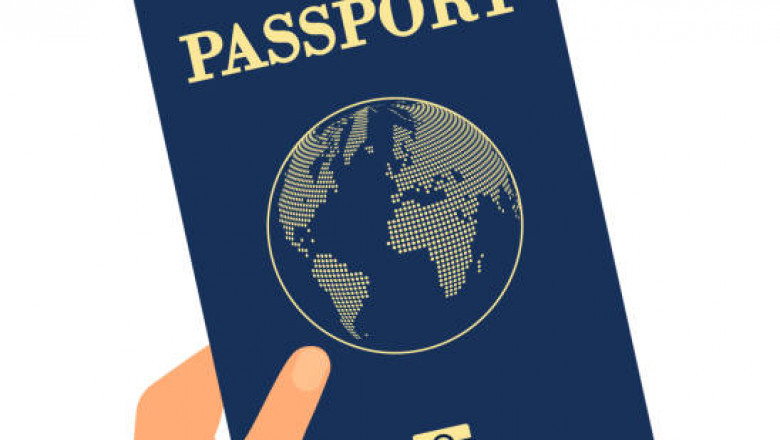views
Have you ever thought of travelling outside India for work? Whether it is as a highly specialised and qualified employee or starting off your career on the right foot, you can expect a lot from working abroad. From niche job profiles to popular sectors like tourism and hospitality, IT, healthcare, research, engineering, or finance, there can be greener pastures on the other side.
However, as an Indian planning to travel abroad for work, there are several things to consider. Whether it is getting a job offer, work permit or visa, travel insurance, or planning accommodations, one essential aspect to consider is ECR vs. non-ECR passports. Keep reading to find out what they are and what their purpose is.
What are ECR passports?
An ECR (Emigration Check Required) passport is a document that enables Indians who lack formal education to travel for work without the risk of exploitation or violence. Unlike a regular passport, an ECR passport is orange, has an ECR stamp, and lacks the address page. In addition to these physical changes, an ECR passport also ensures the security and wellness of Indians when travelling abroad for work.
Travellers with an ECR passport need not worry about any additional checks when travelling for business or leisure. On the other hand, if a traveller is visiting one of the 18 partnered countries for work, individuals with ECR passport will have their immigration checked. In these cases, the local authorities of these partner countries check up on the individual and evaluate their situation before granting them immigration clearance.
What are non-ECR passports?
A non-ECR or ECNR (Emigration Check Not Required) passport is a regular blue passport offered to citizens who have completed their formal education or fulfil specific established criteria. Unlike an ECR passport with a stamp stating ECR, a non-ECR passport does not have any stamp for it.
As a regular passport, by having one, Indians gain access to all the benefits of owning a passport, such as smooth foreign travel and hassle-free journeys, including visas on arrival or visa-free entry to specific countries.
What is the difference between a non-ECR passport and an ECR passport?
While there are several differences between ECR and Non-ECR passports, here are some of the key differences to consider and understand:
What are some countries that have additional checks for ECR Passport Holders?
Currently, 18 countries offer immigration protection to Indians with an ECR passport. Here are some of the countries that have established a Protector of Emigrants (POE) and require additional clarification from Indians with an ECR passport:
-
Afghanistan
-
Iraq
-
Bahrain
-
Indonesia
-
Kuwait
-
Jordan
-
Kingdom of Saudi Arabia
-
Malaysia
-
Qatar
-
Libya
-
Lebanon
-
Oman
-
Thailand
-
Sudan
-
South Sudan
-
United Arab Emirates (UAE)
-
Syria
-
Yemen
What are the eligibility requirements for non-ECR passports?
If you are on the Passport Seva Kendra website and considering the choice between ECR and ECNR passports, travellers should also understand the eligibility requirements for non-ECR passports. Here are some of the eligibility requirements one should consider when choosing the latter option:
-
Completion of 10th grade or above, along with valid documents
-
Individuals who are above 50 years of age
-
Individuals possessing a diploma in polytechnic or nursing from a recognised institute
-
Individuals who have spent at least three years overseas
-
Minors below 18 years of age
-
Income tax payer with an established income source
-
Spouse or child of an income taxpayer
Once you have ensured you are eligible for an ECNR passport, check the Passport Seva Kendra to determine the documents required for non-ECR passport verification using the specified eligibility criteria.
Conclusion
Individuals with non-ECR passports enjoy numerous benefits when travelling internationally, which allow for a smooth and hassle-free travel experience. While it may seem unnecessary, an ECR passport offers protection for Indians without formal education from violence or exploitation. However, while it is helpful for those who need it, travellers can avail of an ECNR passport and travel freely by understanding the specific eligibility criteria and documents.
In addition to passports, travellers should consider getting international travel insurance from a reliable insurance provider like Niva Bupa because of their comprehensive yet affordable policies.














Comments
0 comment